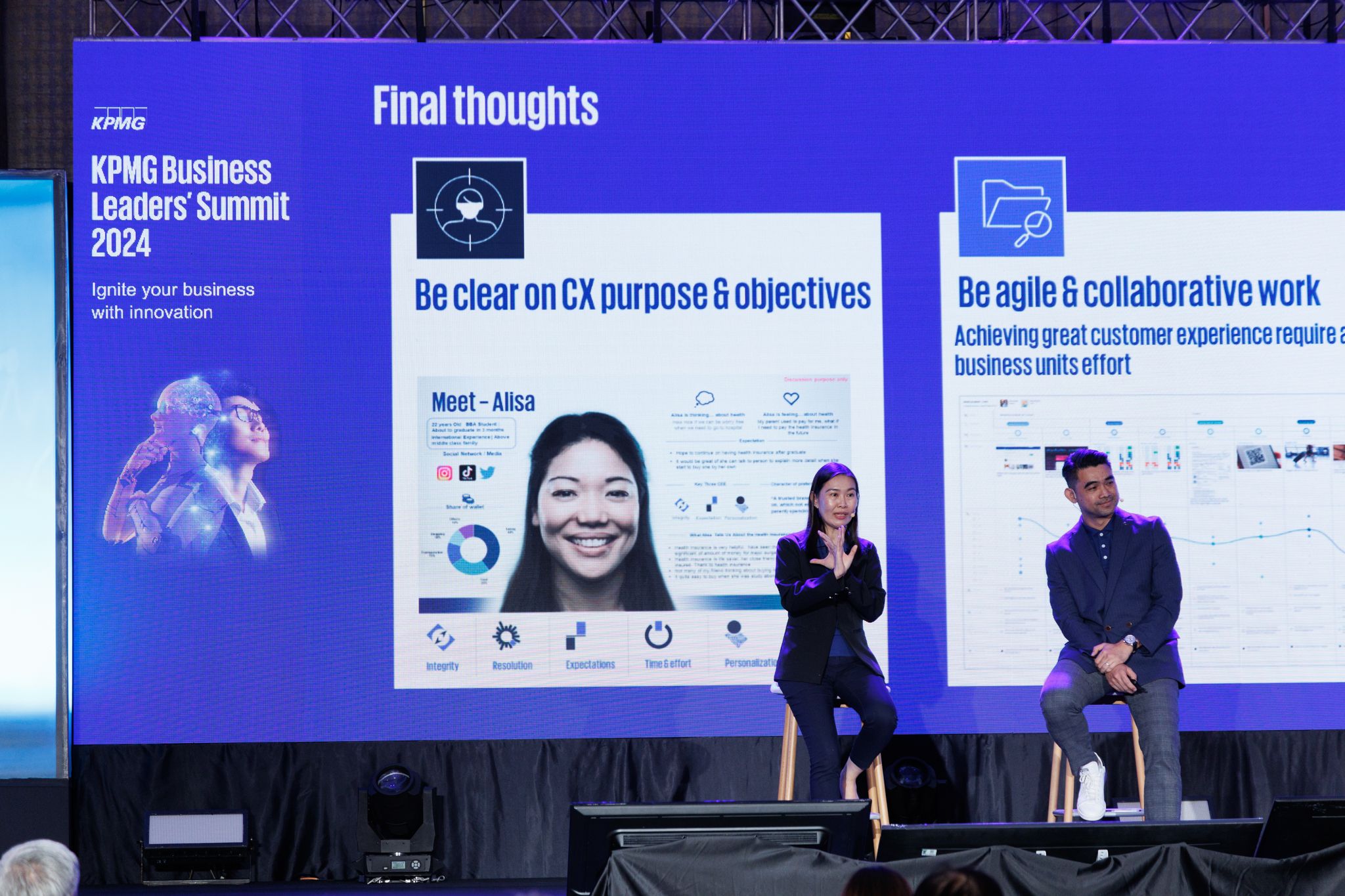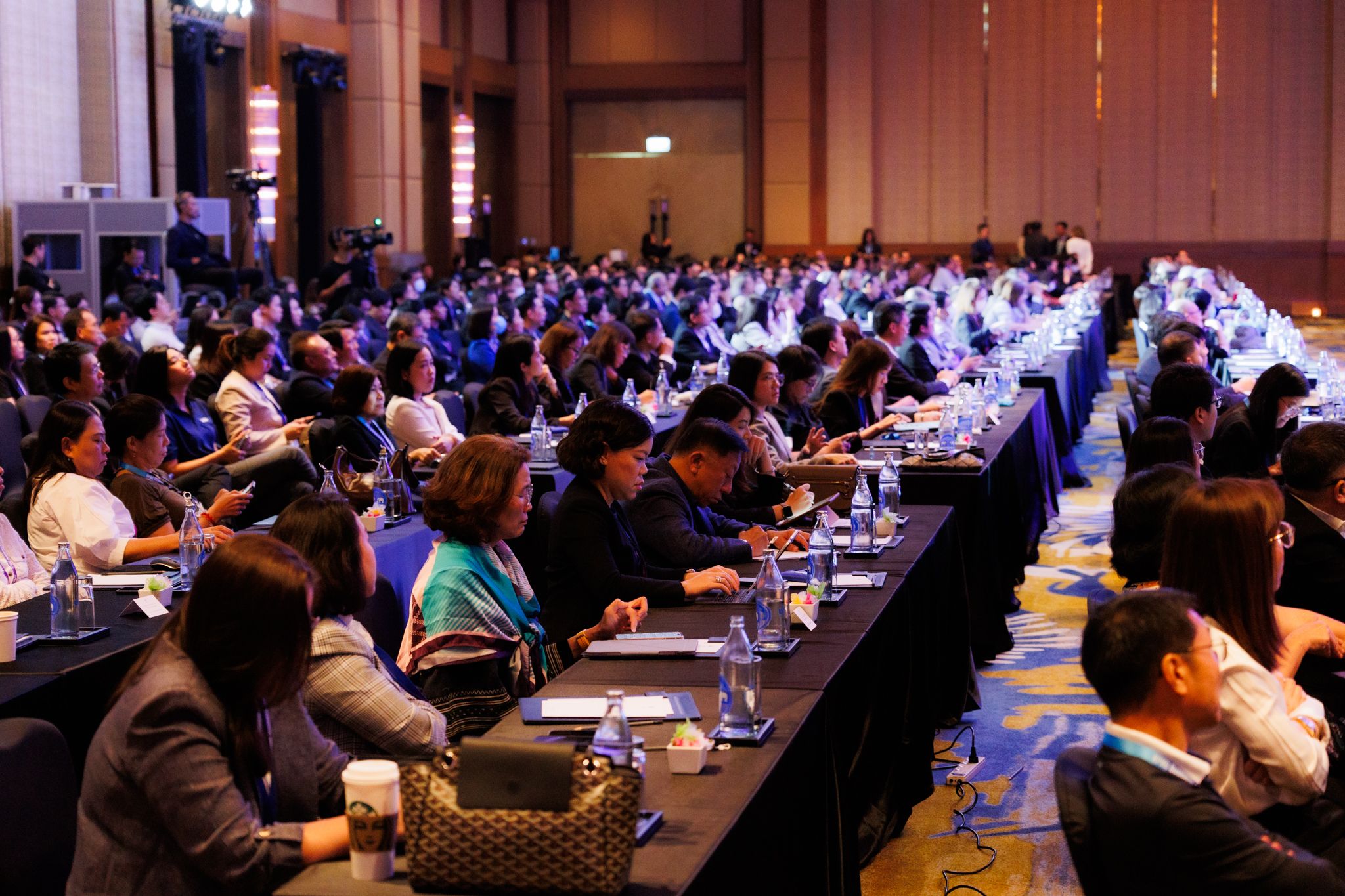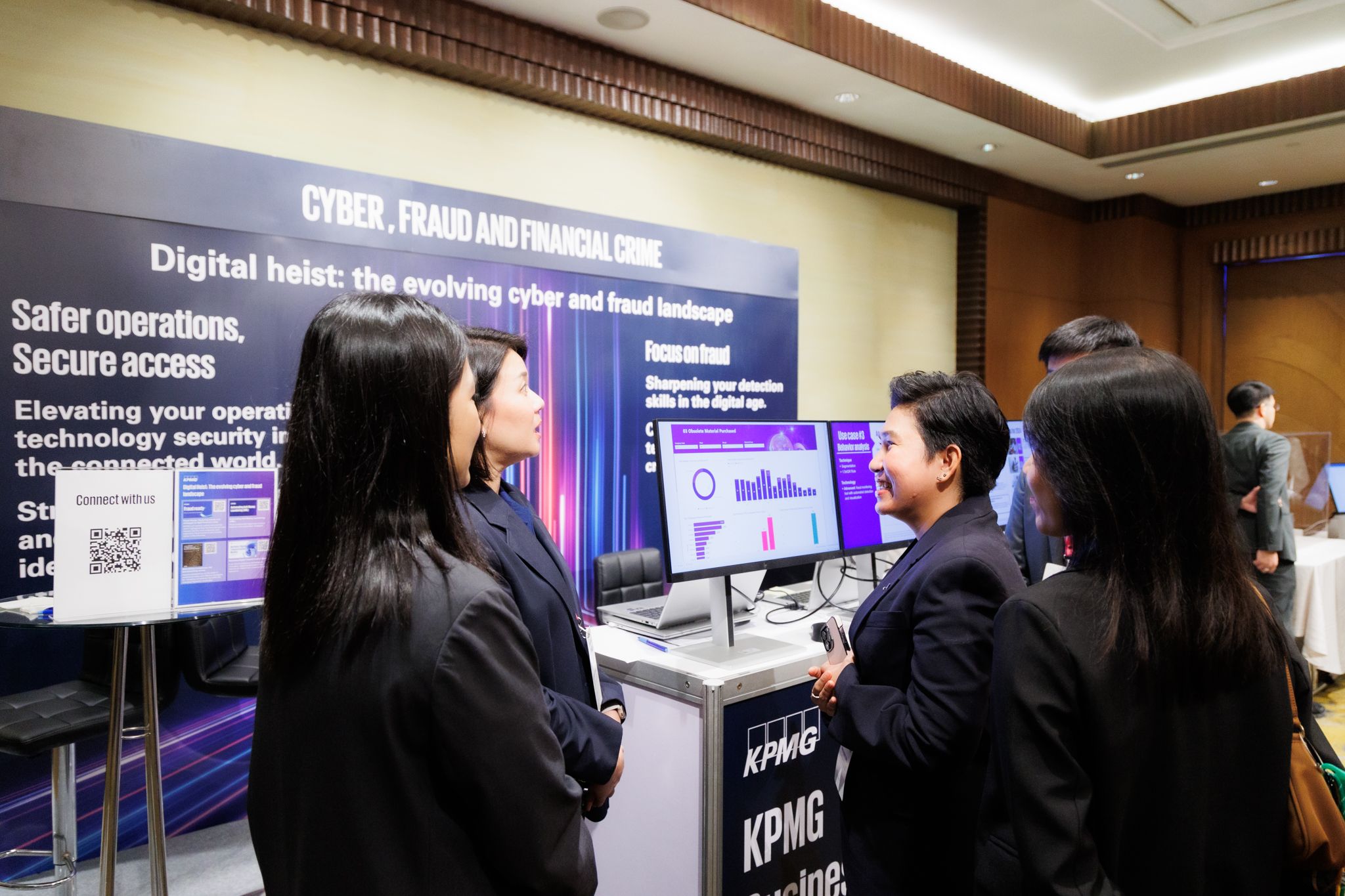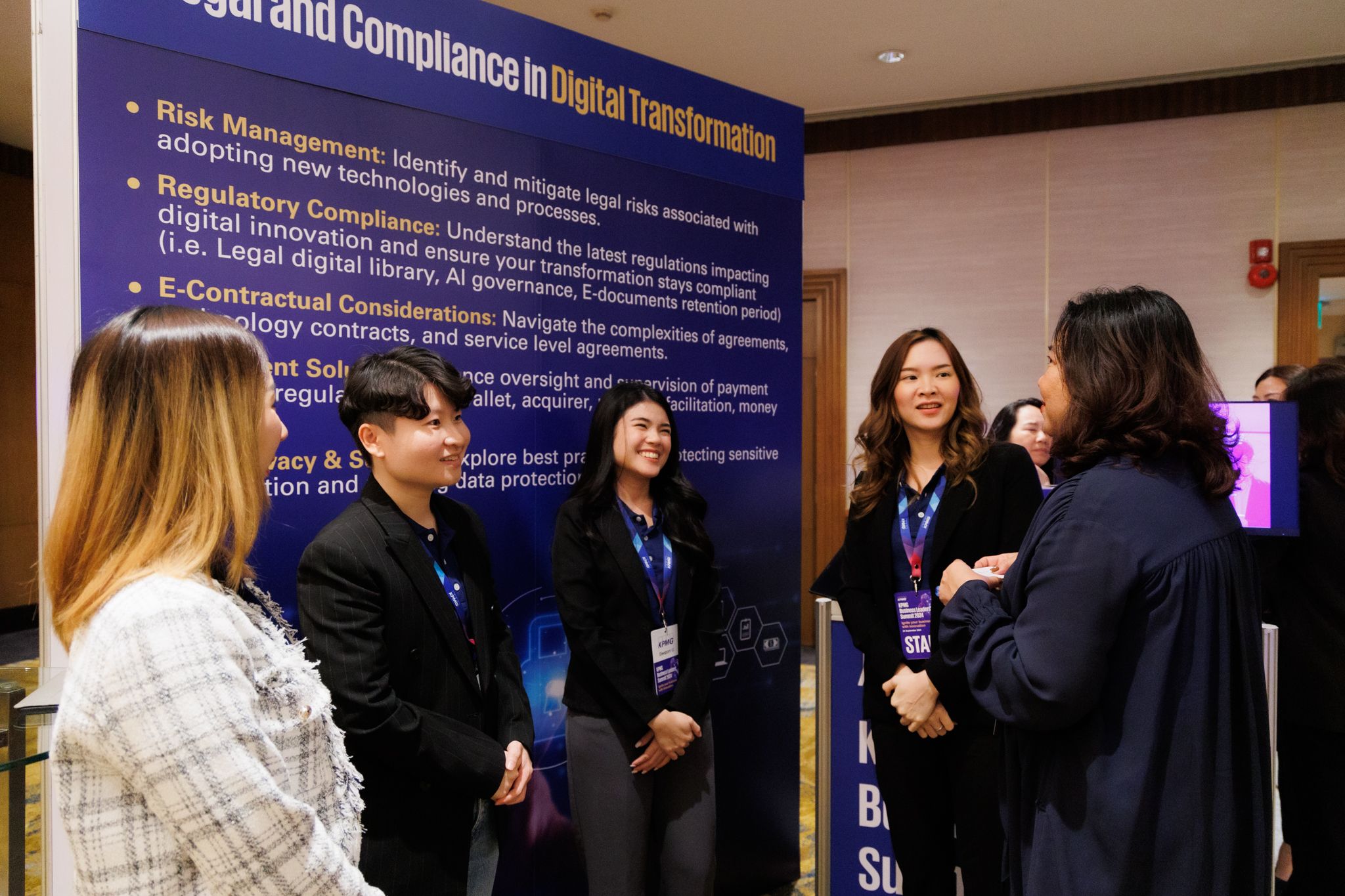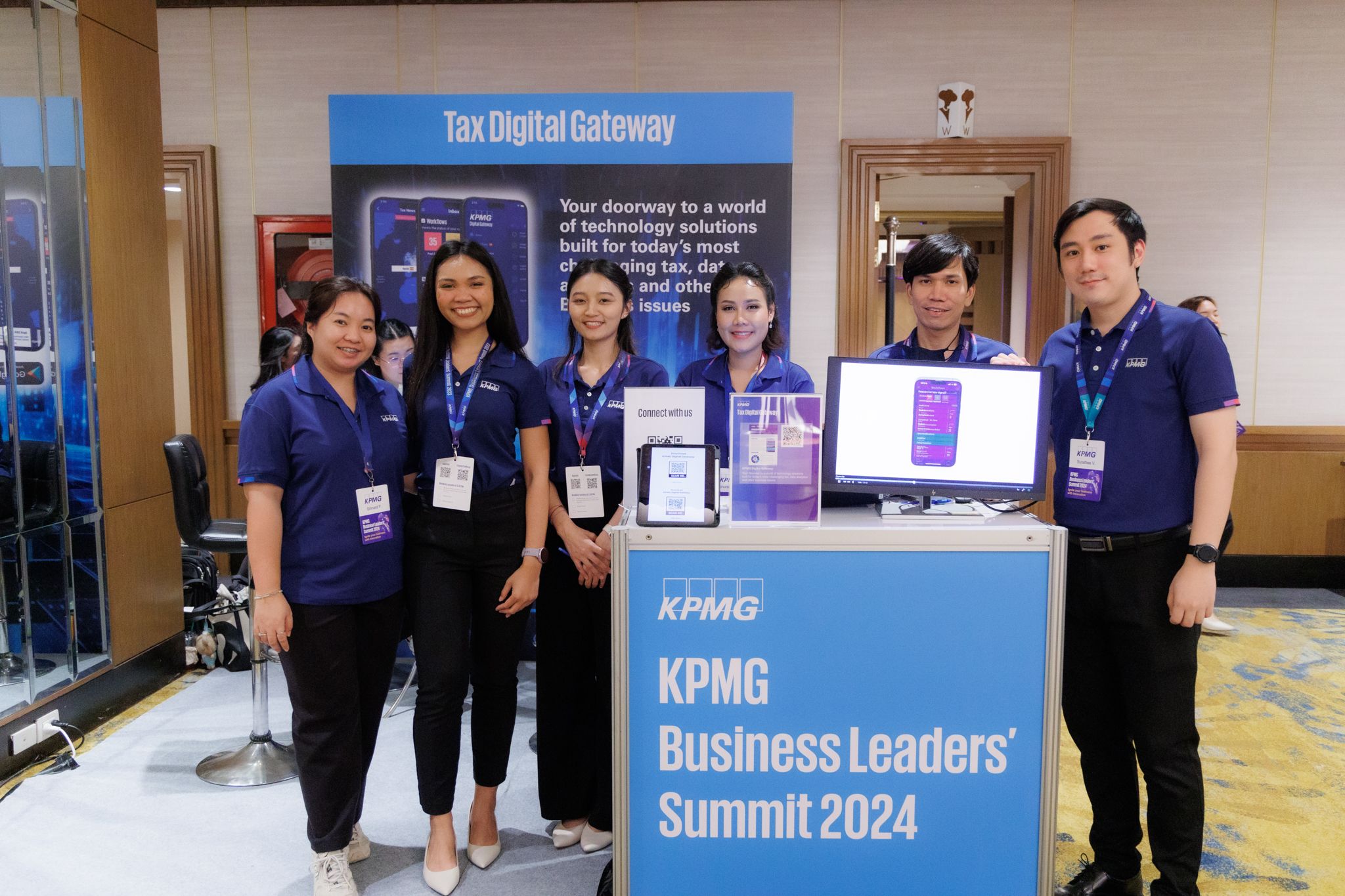Driving innovation and growth: insights from the KPMG Business Leaders’ Summit 2024
Experts share insights to boost business growth amidst rapid technological advancements
Experts share insights to boost business growth amidst rapid technological advancements
EN | TH
- While Thailand maintains steady, though modest, economic growth, its primary challenges lie in technological adoption and climate change.
- Workforce upskilling to keep up with technological advancements is essential, while maintaining human-centric approaches.
- To successfully unlock Gen AI potential, businesses need to ensure job security for their workforce and create environments where employees feel safe to experiment with new technologies.
- Thailand is well-positioned to capitalize on the growing global wellness tourism trend by leveraging its strengths in healthcare, nature, healthy cuisine and traditional medicine.
- With climate targets and regulations encouraging carbon reduction, sustainable finance is essential for businesses to adapt and seize opportunities.
- Customer expectations continue to evolve rapidly. Businesses can enhance customer satisfaction by leveraging AI and integrating technology to deliver an orchestrated customer experience.

Bangkok, 16 October 2024 – KPMG in Thailand organized the “KPMG Business Leaders’ Summit 2024: Ignite your business with innovation” welcoming participants from over 250 leading companies in Thailand. The seminar provided in-depth insights into innovation and strategic approaches to help businesses address future challenges and drive sustainable growth.
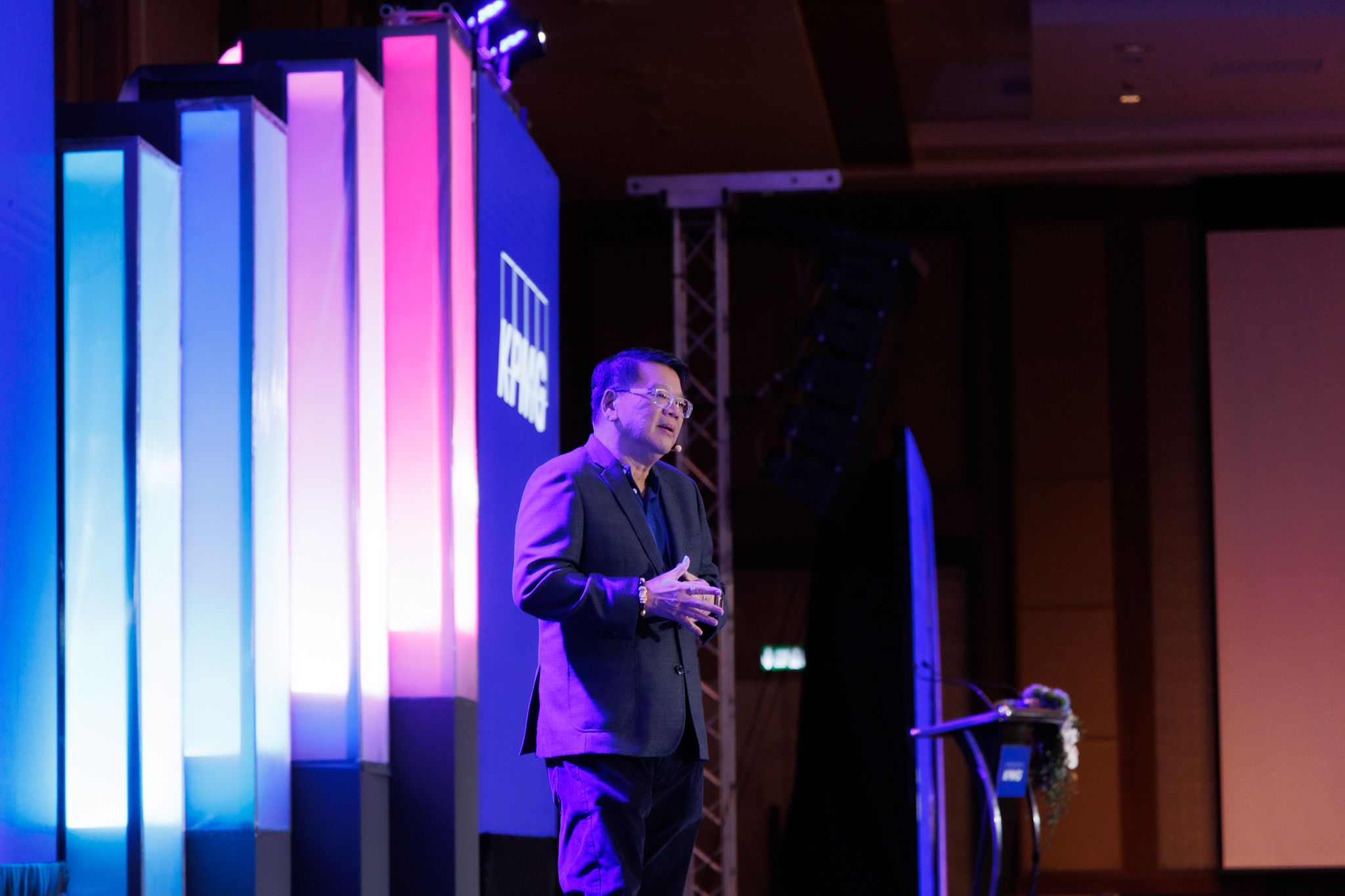
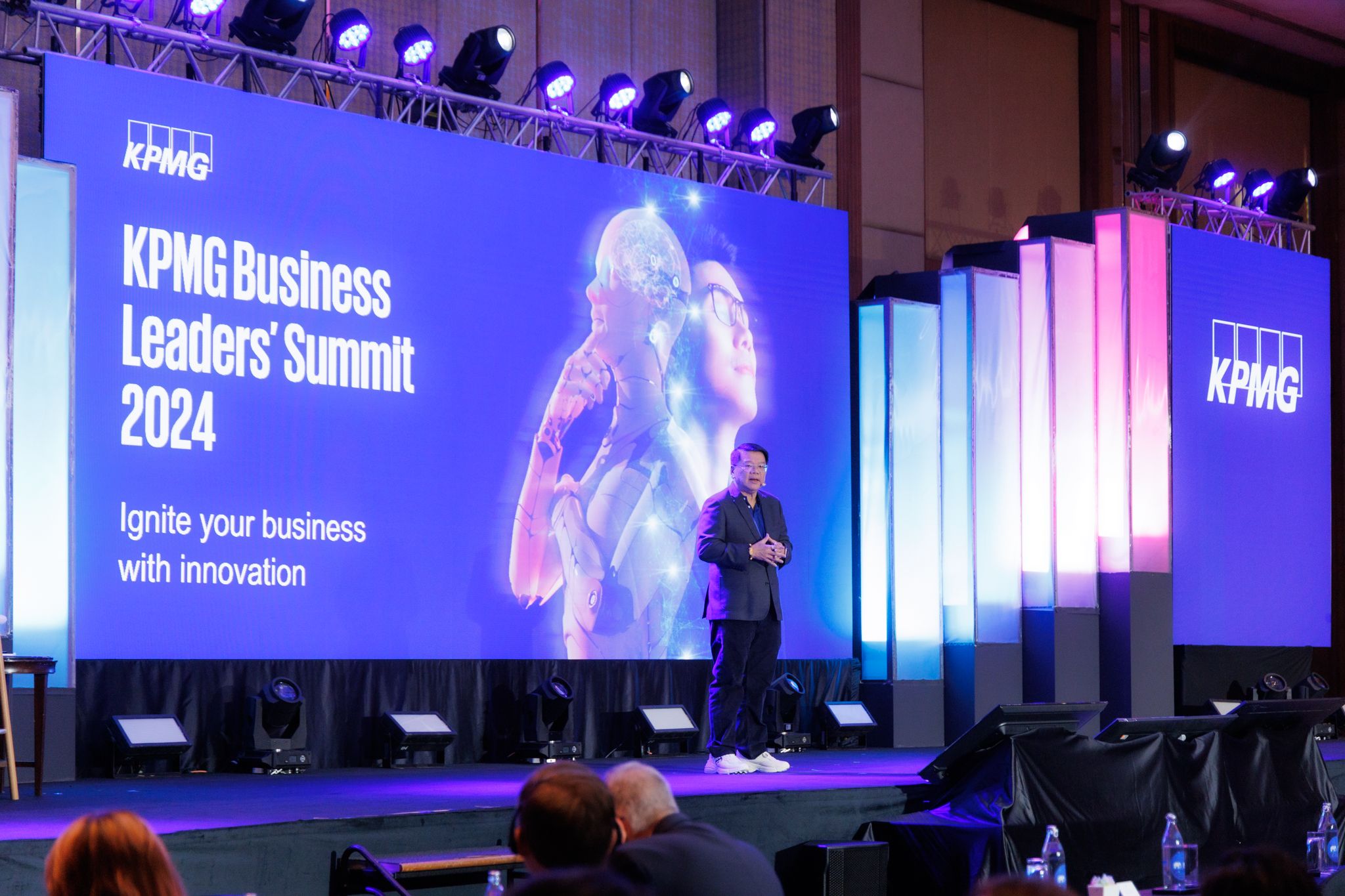
This year’s KPMG Business Leaders’ Summit attracted more than 350 participants from Thailand’s leading companies, reflecting the increasing interest in adopting strategies for long-term success and sustainability. We believe this seminar offered valuable knowledge and practical guidance to help businesses navigate future challenges and seize new opportunities.

Key areas covered by KPMG speakers, along with leading experts from the business community, included the future outlook of Thailand’s economy, workforce transformation, integrating AI technologies into businesses, Thailand’s wellness economy, and the shift towards sustainable finance.
Thailand’s journey to 2030: What lies ahead?
As the global economy moves toward recovery, businesses are facing a more volatile landscape. Key challenges include the implications of interest rate reductions, asset price inflation, global financial market fluctuations, increasing geopolitical tensions and China’s real estate crisis. To succeed, companies must be prepared to adapt and manage these risks.
The Thai economy is expected to recover gradually, with exports and tourism rebounding. Public spending and foreign investment will also contribute to Thailand's economic momentum, though the pace of growth may not meet businesses expectations.
A significant concern for businesses is the convergence of several significant global shifts, including technology disruption, the intensifying global climate crisis ("global boiling"), the rise of the “Asian Century” and shifting geopolitical landscapes. The next five years will be crucial for businesses as they navigate these challenges. Companies that invest in future-proof strategies are more likely to thrive. To survive and succeed amid these challenges, businesses should focus on key drivers such as digital transformation, technology adoption, the green transition, regionalization and large-scale infrastructure projects.
The future of workforce
In the past few years, two significant factors have driven workforce transformation: the rise of the 'smart consumer,' which emerged following the COVID-19 pandemic, and the growing understanding of individual differences through the use of technology. This has enabled organizations to offer personalized experiences that cater to unique employee needs.
Despite technological advances, organizations continue to prioritize human-centric approaches. Intrinsic motivations, such as autonomy, competence, relatedness and purpose, remain unchanged. Organizations must focus on creating environments where employees maintain autonomy, while integrating new technologies such as Artificial Intelligence (AI) to support their work.
Learning and upskilling are key to workforce transformation. According to KPMG's Future of Work report, 72% of employees surveyed agreed that continuous learning and upskilling will be crucial for them to stay relevant in their field. It is essential for organizations to create an environment that fosters learning, providing diverse work experiences and nurturing mentoring and coaching cultures. Beyond strategy, a strong workplace culture that promotes trust and innovation and empowers employees to experiment and learn from failures is essential for growth.
When it comes to investing in people, organizations should shift their perspective, seeing employees not as resources, but as capital essential for long-term growth. A human-centric transformation that aligns individual and organizational purposes will create purposeful leaders and employees, driving long-term business growth.
Gen AI: unlocking the potential
AI is now embedded into a wide range of technological tools, making it more accessible than ever. Its role in branding, customer management and experience design continues to grow. Successfully integrating AI in organizations depends on clear KPIs and fostering an environment where employees feel confident in embracing new technologies. Companies must first focus on creating psychological safety — employees need to feel secure that AI is a tool that supports their work, not their replacement. To keep up with the rapid changes, companies should embrace ambiguity and allow teams to “fail fast” in order to learn fast.
Innovating Thailand’s ecosystems: healthcare spotlight
Key factors driving the rapid growth of the global wellness economy include healthcare innovation that emerged during the COVID-19 pandemic, as well as the transition into an aging society. While Thailand is renowned for medical tourism, it is also well-positioned to attract wellness tourists — typically high-value travelers who focus on health and sustainability.
Thailand's competitive advantages as a global wellness hub include its nature, healthy cuisine, renowned hospitality, traditional medicine, rich culture and a robust medical sector. As the global wellness economy continues to expand, sectors like personal care, nutrition and weight loss are driving growth. Thailand can capitalize on these trends to generate higher profits while minimizing environmental impact.
Financing a sustainable future
Thailand has committed to achieving carbon neutrality by 2050 and reaching its net-zero targets by 2065, with a goal to reduce carbon emissions by 40% by 2030. This will require businesses to adjust their operations, strategies and products to become more environmentally friendly. Financial institutions play a crucial role in supporting this transition.
Thailand Taxonomy classifies economic activities based on environmental considerations using a “traffic light” system. In phase 1, most sectors are currently in the amber zone, meaning they have not yet reached net-zero emissions, but they have the potential for improvement. While this transition poses regulatory risks, it also presents opportunities for businesses that adapt, making it essential to accelerate the shift toward sustainable finance.
Customer experience excellence
Customer experience has become a key driver for brand momentum. Positive interactions attract customers, while negative experiences can erode trust. KPMG’s Six Pillars of Customer Experience Excellence highlights important attributes—empathy, personalization, time and effort, expectations, resolution and integrity—that businesses should focus on to enhance the customer journey and build positive customer experiences.
Thai businesses are increasingly leveraging AI technologies to enhance customer experience. By integrating technology and data, organizations can create a seamless online and offline experience that further enhances customer satisfaction.
To learn more about KPMG Business Leaders’ Summit 2024, please visit https://bit.ly/kpmg-bls2024.
About KPMG in Thailand
KPMG in Thailand, with more than 2,000 professionals offering Audit and Assurance, Tax, Legal, Consulting and Deal Advisory services, is a member firm of the KPMG global organization of independent member firms affiliated with KPMG International Limited, a private English company limited by guarantee.
For media queries, please contact:
Nichakorn Phathanathavorn
